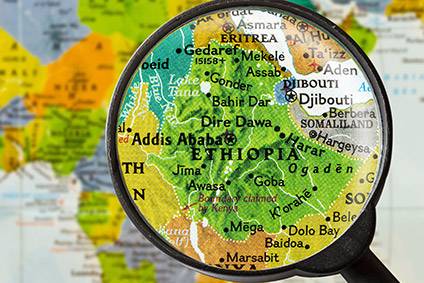
Fewer than half of the people employed in the Mekelle Industrial Park in the war-ravaged Tigray region in the north of Ethiopia have returned to work because of security concerns from the ongoing war.
Of the more than 2,000 employed, only 700 have returned to work.
The park was closed because of the Covid-19 pandemic last year, and battered further when civil war broke out in November 2020 following clashes between the Tigray People’s Liberation Front (TPLF) and Ethiopian armed forces.
Phone lines, the internet and other means of telecommunications were unavailable for many days, with garment and textile factories looted and destroyed.
These include Almeda, Sheba Leather, and DBL garments. The Almeda factory, which employed over five thousand workers, was looted, and destroyed. The other two factories were ransacked.
IndustriAll Global Union affiliate, the IndustriAll Federation of Textile, Leather and Garment Workers Trade Union (IFTLGTWU), which organises the textile, garment, shoe, and leather workers in Mekelle, says it has been difficult to reach its members and their families.
It also warns thousands of jobs will be lost if the factories do not reopen.
Media reports have pointed to killings, rape and looting, which are being attributed to different armed groups involved in the conflict including militias and the army from neighbouring Eritrea. According to the reports, homes, clinics, hospitals, health centres, schools, and grain stores were destroyed or looted, and fields burnt.
This has created a humanitarian crisis in which people are starving and in need of food, water and shelter. Thousands have fled their homes and the government of Ethiopia and UN agencies have appealed for emergency support.
The Ethiopian prime minister said in parliament that gross human rights violations and abuses will be investigated by the Ethiopian Human Right Commission and the Office of the United Nations High Commissioner for Human Rights Council.
“We call upon the government of Ethiopia to provide peace and security to the people and the workers of Tigray. It is important that the armed conflict is ended so that workers can go back to work without fear and that communities can go back to living in peace,” says Valter Sanches, IndustriAll general secretary.
As reported earlier on just-style, the unrest is also a blow for industry and government plans to grow Ethiopia’s garment export sector. Past Prime Minister Hailemariam Desalegn had targeted an additional US$1bn in textile and garment sales every year, to reach US$30bn annually by 2030. But these plans were scaled down by Prime Minister Abiy Ahmed who took power in April 2018.



